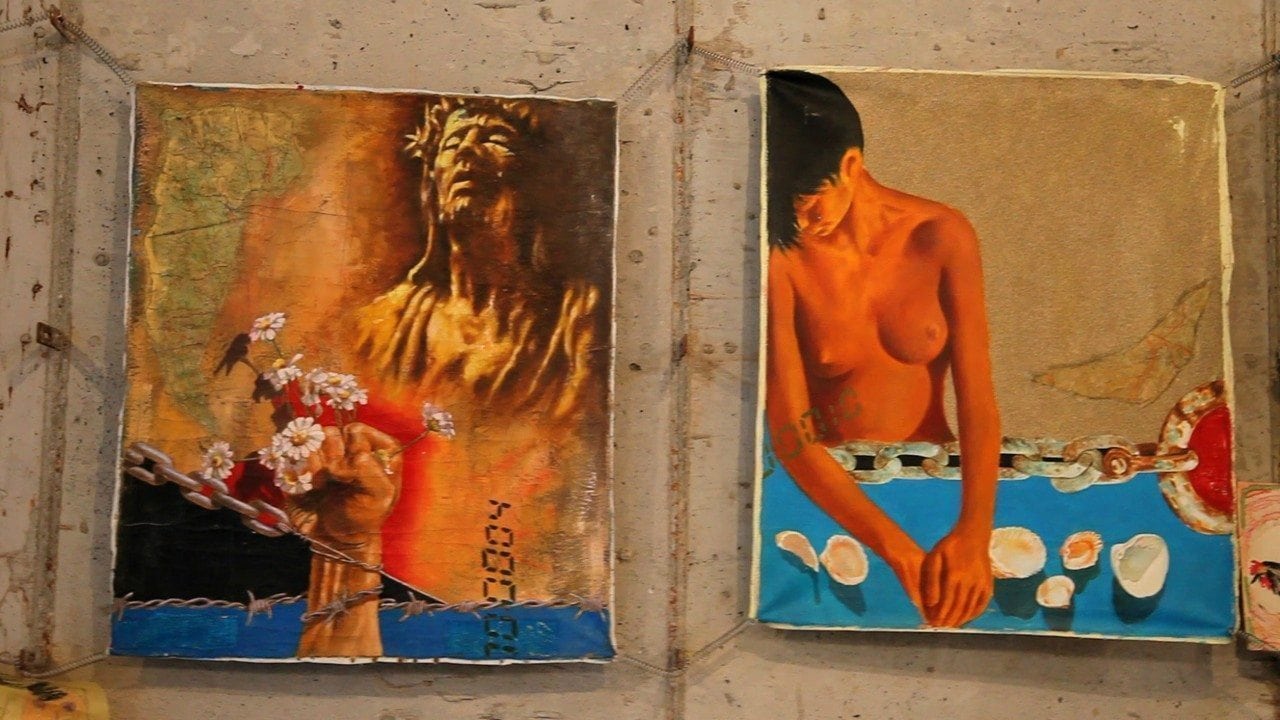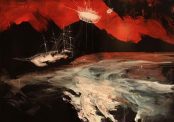Marking Korean director Kim Ki-duk's return to filmmaking, and indeed the world in general, Arirang is an interesting one that will divide opinion.
Having self-imposed a punishing, three-year exile after a near-fatal accident in his last film, Dream (2008), Kim chooses to reemerge in what is part video diary, part documentary, all catharsis. It's a self-indulgent affair that requires some patience to stay the course—but then, one should not expect a conventional film from joint winner of the Un Certain Regard prize at Cannes last year.

The first few minutes may, justifiably, have you lament the fact it's a feature-length. Eleven minutes of silence, watching a man potter around, doesn't inspire much faith. Particularly for a viewer who may come into this blind. But these are an important eleven minutes. We learn the manner in which this world-renowned director has been living, which, considering how long he managed it for, is quite impressive. Silence and observation of mundane, everyday tasks opens the film with no pretensions, telling the viewer exactly what the living situation was.
A true hermit, Kim holed himself up in a wooden, mountainside cabin, a dwelling so cold it was necessary to erect a tent inside. Heels cracked and bleeding, no toilet. Kim's only company was an overweight cat, self-pity and a Mark II camera.
Point made, enter Arirang's raison d'être: Kim's pondering as to what he's doing there, and why. Stating that he cannot make films any more, he will film himself; he must film something in order to be happy. And so it begins, a bizarre self-interrogation/interview that covers a whole gamut of emotions. For this, he differentiates between himself in each guise—including his shadow—by simple rearrangement of his hair, his interviewer face taking a hard-line approach.
such negative catharsis feels rather intrusive to watch
As the admonishing continues, it becomes a tad uncomfortable; such negative catharsis feels rather intrusive to watch. Thankfully, Kim in editor guise as he observes the footage provides some light relief, as he laughs at his own tears, telling himself that he thinks too much. Perhaps. What can definitely be said is that he sings too much. The film's title is actually that of a Korean folk song, considered by some sources to be the country's unofficial national anthem. A somewhat melancholy song, Kim belts it out at several points in the film, progressing more and more towards an ear-offending wail/howl. Still, if you're going to bring your audience in with you to share your anguish….

At times it's a relief to cut back to viewing his solitude and everyday life, particularly in admiring his self-sufficiency. The collection of water via melted snow, sure, not especially impressive, but it's interesting to observe an artist show a talent for the practical. A homemade espresso machine, a gun; the man would do well in a zombie apocalypse. I found this aspect to his character the most fascinating, as you fully expect an artist to be expressive in his depression, after all. Naturally, there is self-indulgence. Repeat shots of his art, screenplays and film posters do labour the point somewhat: yes, we know you are talented and have achieved popular works. But another point of view from that of depression, says that this is more about reminding himself that he is capable. The most important thing to note about Arirang is that Kim made it for himself; this is not a film made for entertainment purposes.
self-indulgent, possibly even conceited
The end result is strangely accessible, a true testament to the man's filmmaking skills. This is, however, an opinion I'll be part of a very small minority for, and doesn't necessarily mean that I agree feature-length is appropriate—again, that decision was self-indulgent, possibly even conceited. Arirang will therefore not attract many new fans. Obviously those existing will get the most out of this, simply for the insight and just how close you feel to someone having stripped himself so bare. However, themes of depression, introspection and gradual resurfacing are universal, and I think anybody who has ever struggled with their mental health could take something from Arirang, perhaps even some inspiration.
At the Institute of Contemorary Arts, London, and selected UK cinemas, June 9th
Tickets
Naila Scargill is editor and publisher of Exquisite Terror, an academic take on the filmic horror genre. www.exquisiteterror.com

Naila Scargill is the publisher and editor of horror journal Exquisite Terror. Holding a broad editorial background, she has worked with an eclectic variety of content, ranging from film and the counterculture, to political news and finance.


















